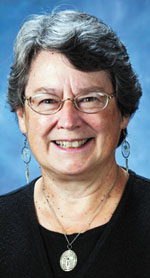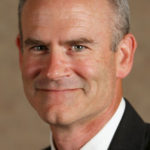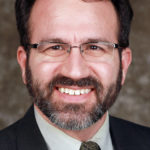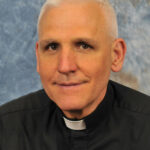By Corrine Winter
In the coming weeks, we celebrate the 50th anniversary of the completion of the Second Vatican Council and that of the publication of a number of its important constitutions and decrees, including the Pastoral Constitution on the Church in the Modern World, Gaudium et Spes, published Dec. 7, 1965.

Originally, teachings set forth in Gaudium et Spes along with those found in the Dogmatic Constitution on the Church, Lumen Gentium, were proposed as parts of one document on the church. Then, in 1963, after a passionate address by Cardinal Leo Suenens, the bishops decided on two documents: one to set forth the teachings on the nature and structure of the church as such (Lumen Gentium) and a second document addressing the church’s mission in the world (Gaudium et Spes). For a number of reasons, the second of those documents is sometimes neglected in a review of the accomplishments and continuing challenges of the Council.
Gaudium et Spes reminds us that as the Son of God has entered into the world, sharing fully with us the experience of human life, and as he demonstrated in concrete ways his concern for the poor, the hungry, the sick and those on the margins of the society in which he lived, our mission must be lived out in similar ways. The church is not exempt from caring about social, economic or environmental injustice or from reaching out to those who are in need in any way. Indeed, the authors insist that the Spirit by whom we are led fills the whole world and that, therefore, we must “discern the true signs of God’s presence and purpose in the events, the needs and the desires [we] share with the rest of humanity today… [in that way] the mission of the church will show itself to be supremely human by the very fact that it is religious (n. 11).”
In fact, the document describes the church as called both to serve the needs of the world and to learn from the world in order to present the Good News more effectively. That description represents a turn from a view of the church as a haven over against a world seen primarily as a source of temptation to a concept of the church as sacrament in and for the world. It is a world which is in dire need of the message of Christ but which is also endowed with God-given gifts and a yearning for meaning that provide a natural opening for the Word of God.
The document also includes accounts of the serious concerns raised by the situation of a rapidly changing world. Traditional structures of family and community life are evolving sometimes without a clear sense of direction. Human persons living within the context of on-going societal fluctuations may be overwhelmed by economic, political or technological issues and lose sight of deeper human values that bind us to one another and to our own ultimate goals.
It is optimism about the world together with a clear acknowledgement of the downfalls of humanity that motivate the church and its members to commit ourselves to the mission we are given in Christ: to be a light for all peoples.
Discerning the call of the Spirit within the day to day experience of life in the world places a special responsibility on lay persons. That is made clear within both Lumen Gentium and Gaudium et Spes as well as in the Decree on the Apostolate of Lay People, published in November 1965. Laity make up the vast majority of members of the church. Only if we take the initiative to reflect on our diverse experiences and to share those reflections will the church have sufficiently broad insights into our times to address them adequately.
St. John XXIII called the Second Vatican Council in hopes of urging the church to live out its calling in ways that could be effective in a changed and ever-changing world. In the past 50 years, the pace of change has not slowed. The call to constant discernment remains pressing. And the process of discernment requires that all of us pay faith-filled attention to all aspects of our daily experience and recognize our obligations within the community of faith.
(Corinne Winter is a professor of theology at St. Ambrose University in Davenport.)











